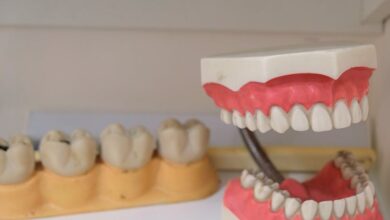If you know anything about hormonal birth control, you’re aware its primary purpose is to prevent pregnancy. That’s a big job, and it rises to the challenge quite well. Just like many other medications, though, hormonal birth control affects your body in other ways.
It’s true. Hormonal birth control — the pill, patch, shot, or IUD — offers benefits that have nothing to do with postponing parenthood. From keeping your period in line to improving your overall health, these medications offer many other advantages for your well-being.
1. Period Control
Few things can spark more panic than your period showing up when you least expect it. If you use hormonal birth control, though, that’s less likely to happen. Take it the right way, and you’ll put your period on a schedule. When you know Aunt Flo is coming, it’s easier to make plans.
Here’s how it works. Most packets of pills include three weeks of hormonal medication and a week of inactive pills. That’s when your period shows up. Need to move your cycle around for a big event or vacation? It’s easy — simply trade your inactive pills out for a week of active ones. Your period will stay away so you can enjoy all the fun.
If you’d prefer to avoid your period as much as possible, try a newer pill option. Many offer three months of active pills, giving you only four cycles a year. Taking the shot or getting an IUD can make your periods lighter, too. After a year, some women just stop having their period.
2. Lessens Irritability
Since you’re no stranger to getting your period, you’re probably also familiar with the uncomfortable days that come before it. You know, those days when you could cry or scream at the drop of a hat. It’s usually caused by premenstrual syndrome (PMS) or — worse — premenstrual dysphoric disorder (PMDD). Millions of women go through it, but that doesn’t mean you have to.
There’s still some debate, but hormonal birth control could help you sidestep the misery. You may need to try a few options, but your doctor can help you find the right medication. Talk with them about the symptoms you feel every month.
3. Reduces Acne
You’ve probably heard that oily foods and not washing your face can lead to more zits. The truth is, your hormones can play a big role, too. Prescriptions, face washes, and ointments can help. If you’re still struggling to get clearer skin, though, ask about hormonal birth control. Your doctor may agree it’s the next logical step to battling your blemishes.
Breakouts tend to happen when your hormones — estrogen and progesterone — go haywire. Going on birth control, however, helps your levels even out. Fewer hormone spikes mean fewer pimple pop-ups. The good news is the clearer skin tends to stick around until you go off birth control.
4. Lowers Anemia Risks
Having a period means you’ll lose blood every month. Losing too much, though, could create another health problem called anemia. Basically, your body’s iron level drops, so you can’t make enough red blood cells. You’re more likely to feel tired and weak.
The benefit of hormonal birth control here is pretty clear. It can make your periods lighter, or it could help you skip them altogether. Either way, you’re losing less blood. Your body holds on to more iron, reducing your risk for period-related anemia.
5. Takes the Edge Off Migraines
These headaches stop millions of Americans in their tracks every month. If you’re one of them, hormonal birth control could be your new best friend. Just like acne, these head pounders are linked to the same hormonal dips and spikes.
Right before your period, your estrogen and progesterone levels drop. That opens the door for some intense pain. Taking birth control stops those levels from falling too far. The more you control your hormone levels, the less discomfort you’ll likely feel.
If you get migraines, don’t start taking hormonal birth control without talking to your doctor, however. Some options increase your risk for stroke. A professional can help you find the safest alternative.
6. Helps With Ovarian Cysts and Endometriosis
Have you been diagnosed with polycystic ovary syndrome (PCOS) or endometriosis? If so, you know those conditions can be extremely painful.
With PCOS you can develop multiple ovarian cysts. They’re not dangerous, but they can cause significant discomfort. Endometriosis happens when your body doesn’t get rid of the tissue that usually bleeds during your period, causing inflammation and severe pain.
In these cases, hormonal birth control stops ovulation. That means you’ll skip your period. You’ll bleed less and have less endometrial pain. Keeping your hormone levels under control also prevents any new cyst growth and stops old ones from coming back.
7. Minimizes Some Cancer Risks
Thinking about cancer can be terrifying. Chances are you’ve heard taking hormonal birth control bumps up your risk. In reality, taking birth control can be both good and bad when you’re dealing with cancer. It’s a bit of a toss-up, especially with IUDs and pills.
You’ll ovulate less and release fewer hormones. That reduces your ovarian cancer risk by about half. Your uterine cancer risk drops for roughly four years, too. The great news is the benefits can stick around for decades.
Here’s the downside. Hormonal birth control kicks up your risk for breast and cervical cancer. The increase is temporary, however. Your risk typically falls back to normal five years after you quit taking the pill.
Hormonal birth control has a long-standing reputation for preventing or delaying parenthood. While you’re taking it, these effects are great additional perks to enjoy. If you didn’t know about them, start paying attention to see if you notice the benefits. If you’re not taking birth control yet, and struggle with any of these problems, it may be worth considering.
For more valuable information visit this website.





